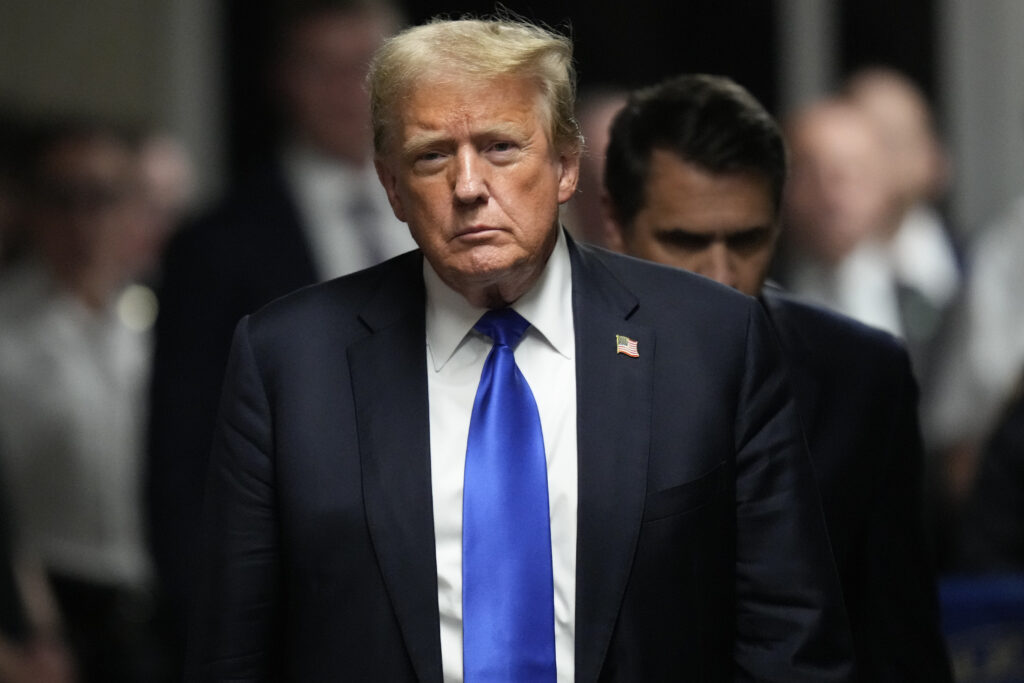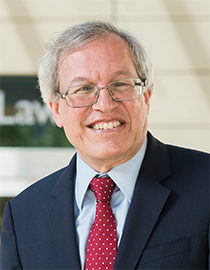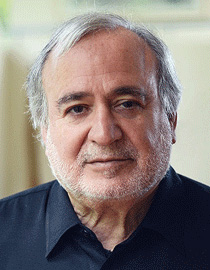Trump’s Conviction ‘a Triumph for the Rule of Law,’ but Election Impact is Unclear

Seth Wenig, pool/AP
The historic conviction on all 34 criminal counts came after 9 1/2 hours of jury deliberation. Berkeley experts said the next question is whether it will affect voters in November.
A New York jury convicted former President Donald Trump Thursday of 34 counts of falsifying business records in an attempt to cover up an affair he had with an adult film star, part of an effort to keep damaging information from voters before the 2016 election. Berkeley legal and policy scholars described the decision as a historic moment for the country — but also one of deep uncertainty in its effect on the 2024 election.
After the verdict was announced, Berkeley scholars reflected on the significance of the decision and what it might mean for the November election and for American democracy.
Berkeley News: In constitutional and legal terms, what is the overarching significance of this indictment?

The Trump verdict is a triumph for the rule of law. The core of the rule of law is that no one — not even a president or a former president — is above the law. Donald Trump repeatedly tried to argue that he was above the law in this case, as well as others.
When the grand jury in this case subpoenaed his financial records, he took the case to the Supreme Court, arguing that as president he did not have to provide the information. The Supreme Court ruled against him. He argued to this court that he could not be prosecuted in New York State Court because he took the actions — writing the checks and falsifying the business records — when he was president.
The court rightly rejected this, and the case was tried before a jury. Donald Trump was convicted on all counts because the evidence was overwhelming that he authorized payment of hush money to Stormy Daniels, illegally concealed it as business records, and did so to help his campaign. The legal system worked as it is supposed to with a fair trial before a conscientious judge. The rule of law was upheld.
— Erwin Chemerinsky, dean of the UC Berkeley School of Law and preeminent constitutional scholar
The former president has been facing extraordinary legal challenges, and now has been found guilty. Thus far, though, his political standing does not seem to be affected. What does this tell us about the mindset of his base? And of the broader electorate?

There is a lot of uncertainty about how Donald Trump’s legal challenges, including this current case, have affected his public support.
On the one hand, it’s difficult to detect any major downturns in Trump’s support after indictments or prosecutions. This is consistent with U.S. public opinion becoming “calcified” by partisan polarization — with vote choice and opinion growing increasingly detached from the “fundamentals” of public policy and how the economy is doing.
On the other hand, it might be that Trump’s legal challenges have eroded his support gradually in ways that we can’t easily detect statistically. Overall, we’re in uncharted territory when it comes to understanding what is driving American voter behavior.
Regardless of the verdict’s effect on public opinion and voting, this is a big moment in history. A former head of state — especially one running for reelection — being found guilty of major crimes is a big deal. Historically, when a fair legal process has determined that a politician is guilty of crimes, it’s helpful for the rule of law if elites exclude that politician from the political system.
— Jake Grumbach, associate professor at the Goldman School of Public Policy
This case, and other legal cases focused on Trump, are being closely watched overseas, among both allies and adversaries. In your view, how is this guilty verdict going to be received by global audiences?

Democracy requires rule of law, and former President Trump’s claims of absolute immunity have helped embolden strongmen around the world who have made similar claims that the law does not apply to them, and who have sought to evade regulations aimed at ensuring citizens can exercise their democratic rights.
I don’t know how the world will react, but a case in which Trump is found guilty by a citizen jury for charges related to undemocratic campaign tactics should give others some faith in the potential resilience of democracy and rule of law in the face of those around the world who threaten democracy.
— Susan Hyde, co-director of the Institute of International Studies and professor of political science
It’s one of the most profound paradoxes: Former President Trump is accused of sexual transgressions, including sexual assault and adultery, and of lying about these cases, and yet up to this point his popularity among evangelical Christian conservatives seems undiminished. What impact might we expect among those communities from today’s guilty verdict?

I will be surprised if a guilty verdict changes the minds of the evangelical voters who have invested their political capital in him, and who, when they pay attention at all, routinely accept his characterization of all his legal challenges.
The significance of a guilty verdict in this case is surely with those other voters who have been inclined toward Trump, but have shown discomfort with him displayed, for example, by voting for Nikki Haley.
— David A. Hollinger, professor emeritus of history
What impact do you think a guilty verdict might have on the 2024 presidential election?

This situation is so distant from our prior experience that it is impossible to be confident about predictions about the impact on the presidential election.
Our usual theories for understanding American politics would have told us after January 6th, 2021, that there is no way that former President Trump would be the Republican nominee in 2024 — and that if he were, he would not be running neck-and-neck (and quite possibly ahead of) President Biden.
The case for it having a substantial impact is rooted in the idea that it may remind more voters of the aspects of the Trump presidency that they disapproved of — and could help make the election more of a referendum on Trump (and all that goes along with him), as opposed to Biden.
The case against it having a substantial impact is that Trump has been a central figure in U.S. politics for nearly a decade — most voters’ views of him solidified years ago. His support has changed little over the past several years, holding up in the face of events that one might have expected to be game-changers.
— Eric Schickler, political scientist and co-director of the UC Berkeley Institute of Governmental Studies
Trump earlier warned that there could be violence if he was indicted, but that didn’t happen. And yet, many analysts say that Trump is not afraid of soliciting violence if it’s useful to him. Do you think this verdict could precipitate violence, either now or down the road? Why or why not? (Is his base deflating?)

The guilty verdict calls the question that has been with us since at least the Access Hollywood tape of October 2016: With Trump now a convicted felon, will his supporters stay with the man who assured us all he could shoot someone on Fifth Avenue and lose nary a voter?
There is also the corollary to this question: Can Trump himself maintain? Courts have by now undermined the historic pillars of his psyche: his money (half a billion for defamation) and his business organization. Now, they threaten his freedom.
The likelihood of a shift in support — whether from the base or the Trumpified GOP — seems slim. But there is a novelty here worth noting. Trump’s central argument throughout the trial and going forward has been that Biden is running the show. But Trump refused to allow this and the rest of his it’s-all-rigged grandstanding/campaigning to be sworn to under oath or subject to cross-examination. In the siloed world of right-wing media, there’s little purchase here. The charge for the Biden campaign is to try to use this damning bit of hypocrisy to peel away support from independents and what remains of traditional “rock-ribbed” Republicans.
Meantime, Trump will escalate. Already this week, he’s moved to calling Biden in charge of an assassination plot against him. Trump’s undermining of the judiciary — a page one tactic from the strongman’s playbook — will continue apace and foreshadow a Trump Justice Department and his allies on the Supreme Court.
We will see a lot more of contradictions like Trump’s and the party’s incessant harping on the politics of Judge Merchan’s daughter, in contrast to Republicans having no problem with Supreme Court Justices Alito and Thomas’s assertions that the politics of their wives in no way constitutes an appearance of impropriety.
— Lawrence Rosenthal, founder of and lead researcher at the Berkeley Center for Right-Wing Studies and author of Empire of Resentment: Populism’s Toxic Embrace of Nationalism
Broadly, what impact might the indictment have on voters? More narrowly, how might it play out among Trump’s base?

Most voters don’t pay much attention to politics and don’t know much about politics. Once in a while, an event breaks through to even the least engaged voters. Trump’s conviction seems like one of these events.
It’s hard to imagine that among the least attentive, this conviction wouldn’t hurt Trump considerably. Among Trump’s base, however, the conviction may help. It further feeds Trump’s narrative that Democrats are using government to target him unfairly. It may mobilize his base to turn out at higher rates on Election Day and donate more to his campaign.
Which of these forces wins out on Election Day is anyone’s guess.
— Gabriel Lenz, professor of political science and author of Follow the Leader? How Voters Respond to Politicians’ Policies and Performance
What impact do you think a guilty verdict might have on the 2024 presidential election? Could it damage him among traditional Republicans and conservatives? Could it actually strengthen him?

For all of us who knew that it would be impossible for Donald Trump to be elected president after the Access Hollywood video became public in 2016, this should be a moment for caution. But while it’s impossible to predict whether this decision will change the outcome of this year’s election, it’s a bit easier to see some of the ways it might affect the campaign between now and November.
The Trump campaign has already made it clear that they will use the verdict to motivate their base. But Trump’s supporters were already extremely motivated, so while this may help the campaign’s fundraising, their challenge has always been expanding his support beyond his committed loyalists. This is going to make that task much harder.
The more important question is whether Biden can utilize this decision to motivate his party’s base. Democratic progressives have been unhappy with the president on many issues, most notably the Gaza War, and they frequently say that they see little difference between the two candidates. The question is whether the Biden campaign can convince them that preventing a convicted felon from becoming president is worth their time and effort.
— Dan Schnur, lecturer at the UC Berkeley Institute of Governmental Studies
